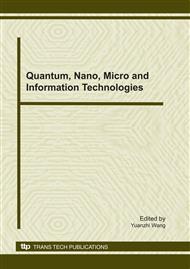p.470
p.476
p.482
p.488
p.492
p.498
p.504
p.510
p.517
Research on the Coordination Degree of the Linkage Development between Manufacturing and Logistics
Abstract:
Manufacturing is a major driving force and an important pillar for national economic development .It is also an important source to create national income. The current logistics model of manufacturing and the low level of development in logistics industry significantly restricted the industry prosperity and development, and affected the overall strength of the supply chain. The paper firstly explains the relevant research about industrial linkage and coordination degree, and creatively forms development paths of industry linkage between manufacturing and logistics. Then, the paper takes the development situation of the manufacturing and the logistics industry during the period 2000 to 2008 in China as the research object. It builds an evaluation model about coordination of manufacturing and logistics industry linkage in MATLAB, and analyze the change of coordination degree about the manufacturing and logistics of linkage by SPSS. Finally, it concludes the results of the paper in this study.
Info:
Periodical:
Pages:
492-497
DOI:
Citation:
Online since:
November 2010
Authors:
Keywords:
Price:
Сopyright:
© 2011 Trans Tech Publications Ltd. All Rights Reserved
Share:
Citation:


